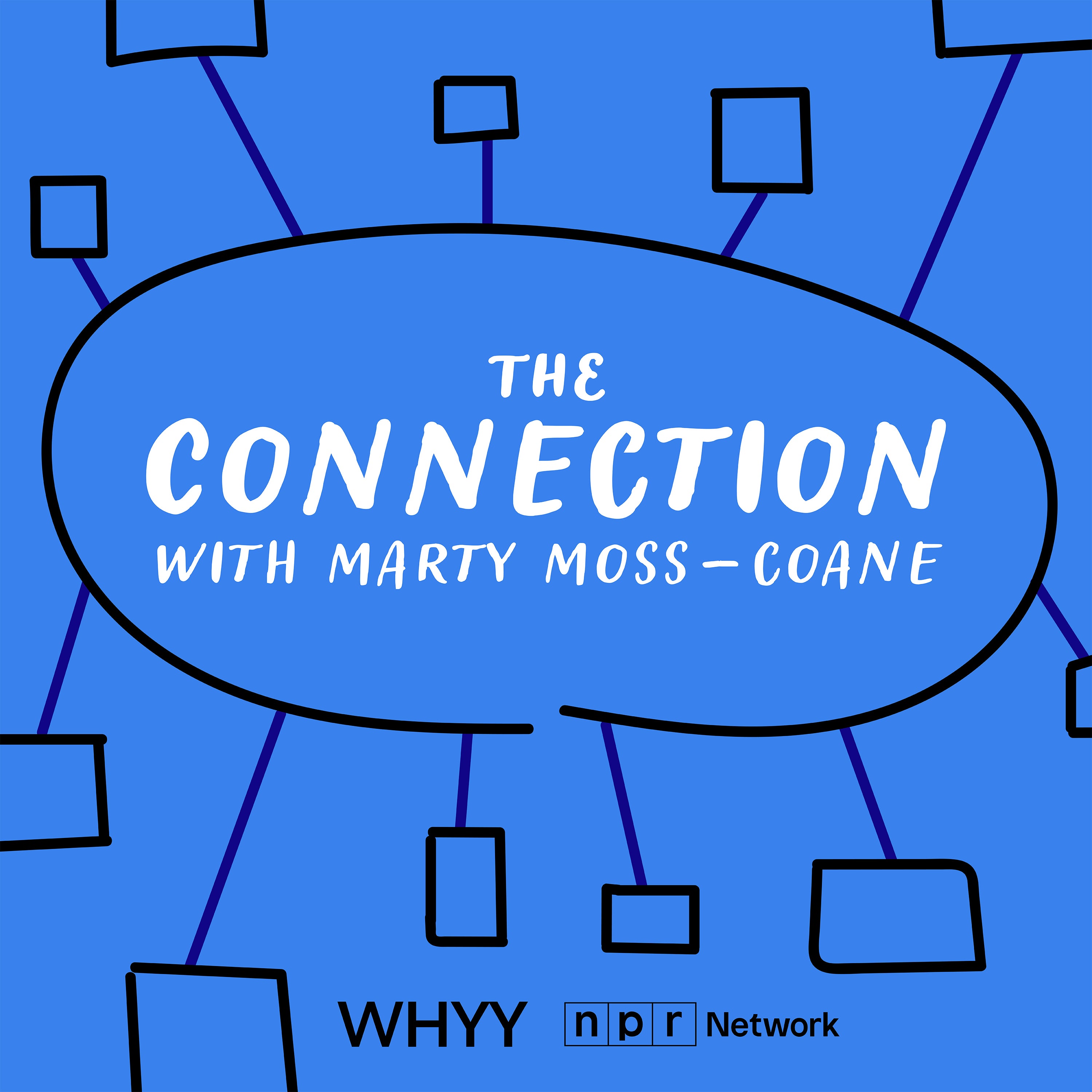

The Connection with Marty Moss-Coane
WHYY
Episodes for The Connection with Marty Moss-Coane
Episodes
Mentioned books

Jan 23, 2026 • 50min
The neuroscience of extremes: altruism and psychopathy
Neuroscientist Abigail Marsh on extraordinary altruism—people who risk their lives to help strangers—and its opposite: psychopathy, little or no capacity for empathy.

Jan 16, 2026 • 50min
Salman Rushdie reflects on language, imagination and mortality
Salman Rushdie knows more about death than most of us. Decades ago, he lived in hiding after a death threat was issued by Iran’s Ayatollah Khomeini following the publication of his novel The Satanic Verses.

Jan 9, 2026 • 50min
How humor connects us and helps us weather tough times
Humor, he says, also allows us to be more observant, more vulnerable and more willing to take social risks. He joins us this week to talk about how to find laughter in our not-so-funny world. He’s hosts the podcast How to be a Better Human.

Jan 2, 2026 • 50min
Dr. Ezekiel Emanuel’s six simple rules for a long and healthy life
Ezekiel Emanuel is an oncologist, bioethicist, and health policy analyst who wrote a provocative piece for The Atlantic in 2014 titled “Why I Hope to Die at 75.”
In the article, he argued that quality of life matters more than longevity, which results inevitably in decline, disability and disease. He will not turn 75 until 2032, at which point he said he would refuse treatments and tests and live out his natural life.
In the meantime, Emanuel has written a book, Eat Your Ice Cream, about how to live a long and healthy life.
He urges readers to forget the pricey fads and pseudoscientific claims that promise to defy the odds. Longevity, he says, is not a competition to see who can live the longest. Instead, he offers instead six simple rules: avoid unnecessary risks, be socially connected, stay curious and active, sleep well and reward yourself from time to time.
Emanuel joins us to take on the wellness industrial complex and talk about how to get the most out of living.

Dec 26, 2025 • 50min
How to survive cold, dark winter and difficult times
Do you dread wintertime? Learn how to love it. Psychologist Kari Leibowitz explains how to cultivate a winter mindset to cope with cold days and the dark times in life.

9 snips
Dec 19, 2025 • 50min
Tim Merrill on faith, resilience and resistance
Tim Merrill has been a pastor and youth leadership developer in Camden for decades. He dedicated his new novel, “The Song Sparrow,” to the young people of Camden.

Dec 12, 2025 • 50min
Epstein survivors speak out
Survivors Annie Farmer and Liz Stein open up about breaking the culture of silence, coping with public spotlight, and combating sex trafficking.

Dec 5, 2025 • 50min
Nedra Glover Tawwab on setting boundaries and finding balance in relationships
Nedra Glover Tawwab grew up in Detroit in a family with numerous problems, including relationship conflict, addiction, and financial instability. Her way of coping was to become highly independent, relying on herself to meet her needs. Although she was praised for her maturity and self-sufficiency, she often felt bitter and alone. She didn’t know how to ask for help.
Tawwab has since become a highly sought-after therapist who specializes in dysfunctional relationships. She has a large Instagram following and hosts a popular podcast. She’s also written several books: Set Boundaries, Find Peace; Consider This; and the forthcoming The Balancing Act.
She joins us this week on The Connection to talk about how to break old patterns that no longer serve us and how to build a healthier relationship with ourselves.

Nov 28, 2025 • 50min
Poet Edward Hirsch on his memoir “My Childhood in Pieces”
Edward Hirsch is one of the country’s most celebrated poets, which would have been a big surprise to his mother. She warned him growing up, “Poetry is fine so long as it sells products. Otherwise, it’s just a hobby, and no one gets paid for a hobby.”
That’s from Hirsch’s new book, My Childhood in Pieces, which he describes as an elegy and a stand-up comedy.
He grew up in Chicago and Skokie, IL with a complicated and colorful family. His dad was a gambler, his mom had boundary issues, and his stepdad had a temper. Hirsch writes that comedy was a competitive sport in the family, and one could easily get hurt. The book is filled with jokes, puns and one-liners.
Edward Hirsch joins us to talk about how he navigated the emotional landmines of his childhood and how poetry has helped him manage big feelings. He wrote recently that he is losing his eyesight which, rather than being tragic, has made him “more mindful and alert, more fully present.”

Nov 21, 2025 • 50min
Learning to focus on what matters most
Psychologist Diana Hill explains how to revitalize our relationship with ourselves and focus on what really matters.


